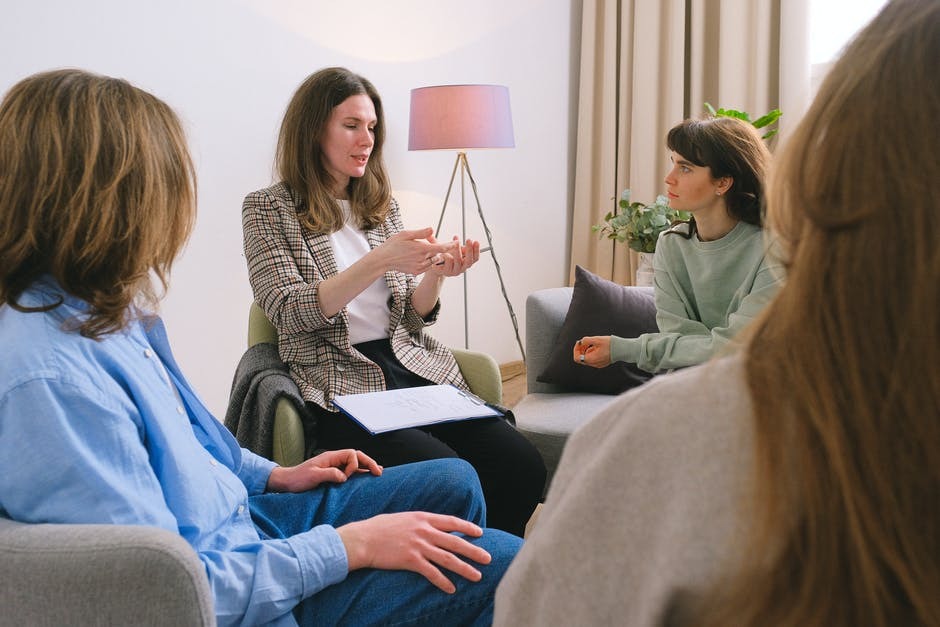Individuals recovering from substance use disorder (SUD) often have relationship issues that need addressing during treatment. According to the Journal of Food and Drug Analysis, “Couples or family sessions can help families address their questions and concerns, change how they interact within the family system, and improve communication.” Newport Beach Recovery Center offers family and marriage therapy to clients in all of our treatment programs. We can help you heal from the damaging side effects of substance abuse and repair essential relationships.
What Is Marriage Counseling?
During marriage or couples therapy, you will attend joint therapy sessions with your significant other. Depending on the program, sessions might take place in person or online. Outpatient clients often benefit from in-person appointments. However, individuals new to rehabilitation or early in treatment might do better using telehealth services. For some people, physical distance can decrease stress and make it easier to focus on recovery.
Marriage counseling usually consists of the following:
- Weekly joint and individual sessions
- Homework that may include documenting events or practicing coping skills
- Discussing problems and improving skills like conflict resolution
Often, the tension between couples improves when they increase communication and establish healthy boundaries. According to BMC Public Health, “Studies have found significant improvements in relationship satisfaction from pre- to post-treatment and throughout one to two years following [counseling].” Couples therapy can guide you through the process of resolving conflicts healthily. Once you identify your needs and any relationship problems, you can address them in therapy sessions.
How Can Marriage Issues Interfere With Rehabilitation?
Many people in recovery choose to focus on their mental health without prioritizing their relationships. However, social interactions and the support of loved ones play a vital role in relapse prevention and long-term recovery. Ultimately, the decision to include your partner in the process often depends on the circumstances of your relationship.
The most common ways that relationship issues can interfere with rehabilitation include the following:
- Loss of emotional and social support
- Increased stress, anxiety, or depression
- Lower self-esteem and self-confidence
- Financial strain
- Family instability
Couples with children face the added challenge of navigating relationship issues while prioritizing their children’s development and well-being. You can successfully overcome these problems by making an effort to include marriage therapy in your treatment plan.
What Are the Benefits of Marriage Therapy?
Marriage or couples therapy can help you communicate your feelings and give you insight into what your significant other needs. Couples therapy does the following:
- Allows couples to focus on their relationship and each other
- Improves overall communication
- Provides access to an unbiased and objective outside perspective
- Improves self-awareness and personal growth
- Decreases risk of divorce or separation
- Encourages healthier family dynamics
In addition to providing support and conflict resolution, marriage therapy also lowers the risk of relapse triggered by relationship stress. Therapy can help couples forgive past mistakes, accept current circumstances, and move forward. According to the Journal of Family Psychology, “[R]esearchers have concluded that forgiveness is the cornerstone of a successful relationship.” You can reconcile with your loved one or strengthen an already strong bond by attending therapy and finding ways to support one another.
Should You Attend Marriage Therapy During Treatment or Aftercare?
Not everyone needs marriage therapy, and sometimes one or both individuals may not be ready to take that step. Treatment requires a couple to willingly work together and agree on a healthy path forward. However, sometimes it takes a while to reach that point. If you and your significant other struggle to see eye to eye or have unresolved issues, therapy may help.
Most people do not attend marriage therapy during detox or early recovery. Instead, they spend that time focusing on achieving physical and psychological stability. However, in the later stages of treatment or aftercare, relationship issues may become a significant stressor that requires attention. You can collaborate with your care team to determine if marriage therapy will improve your outcome and lower your risk of relapse. Usually, individual therapy is the best place to start. In some cases, people choose to include marriage therapy later after they feel more confident in their sobriety and emotional stability.
You Can Repair Your Relationships
Every couple faces ups and downs in their relationship. Substance abuse may cause significant tension. Addressing issues early, learning to communicate effectively, and compromising will help you repair any damage. It’ll also stop SUD from causing more problems within your relationship.
Marriage issues can interfere with recovery if left unaddressed. You may feel helpless or uncertain about how to repair your relationship from the damage caused by substance abuse. However, you can heal your relationship and forge deeper bonds with your family and significant other. Couples therapy will give you the tools you need to recover and build a healthier future for your family.
Many people in recovery have relationship problems caused by substance abuse. Healing those wounds takes time and hard work. Attending therapy with your significant other can give you the tools you need to repair that damage. Some couples attend therapy even if they have no noticeable issues with their relationship to establish a healthy line of communication. Newport Beach Recovery Center offers marriage and family therapy to all of our clients. We understand that family and social support are critical to long-term recovery. We encourage family to attend psychoeducation groups to understand their loved one’s disorder better. To learn more about our programs and services, call our office today at (855) 316-8740.Â








